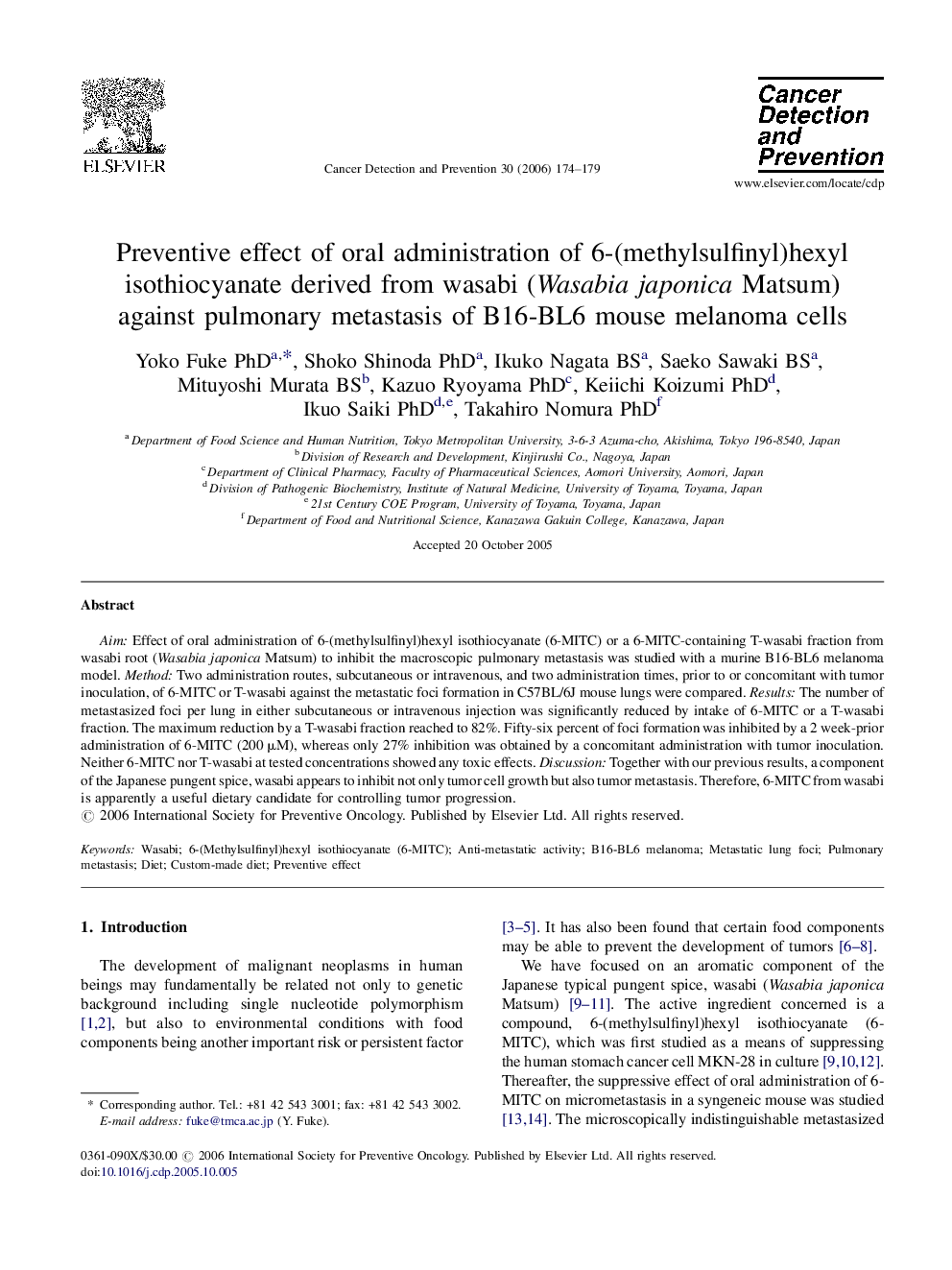| Article ID | Journal | Published Year | Pages | File Type |
|---|---|---|---|---|
| 2108795 | Cancer Detection and Prevention | 2006 | 6 Pages |
Aim: Effect of oral administration of 6-(methylsulfinyl)hexyl isothiocyanate (6-MITC) or a 6-MITC-containing T-wasabi fraction from wasabi root (Wasabia japonica Matsum) to inhibit the macroscopic pulmonary metastasis was studied with a murine B16-BL6 melanoma model. Method: Two administration routes, subcutaneous or intravenous, and two administration times, prior to or concomitant with tumor inoculation, of 6-MITC or T-wasabi against the metastatic foci formation in C57BL/6J mouse lungs were compared. Results: The number of metastasized foci per lung in either subcutaneous or intravenous injection was significantly reduced by intake of 6-MITC or a T-wasabi fraction. The maximum reduction by a T-wasabi fraction reached to 82%. Fifty-six percent of foci formation was inhibited by a 2 week-prior administration of 6-MITC (200 μM), whereas only 27% inhibition was obtained by a concomitant administration with tumor inoculation. Neither 6-MITC nor T-wasabi at tested concentrations showed any toxic effects. Discussion: Together with our previous results, a component of the Japanese pungent spice, wasabi appears to inhibit not only tumor cell growth but also tumor metastasis. Therefore, 6-MITC from wasabi is apparently a useful dietary candidate for controlling tumor progression.
